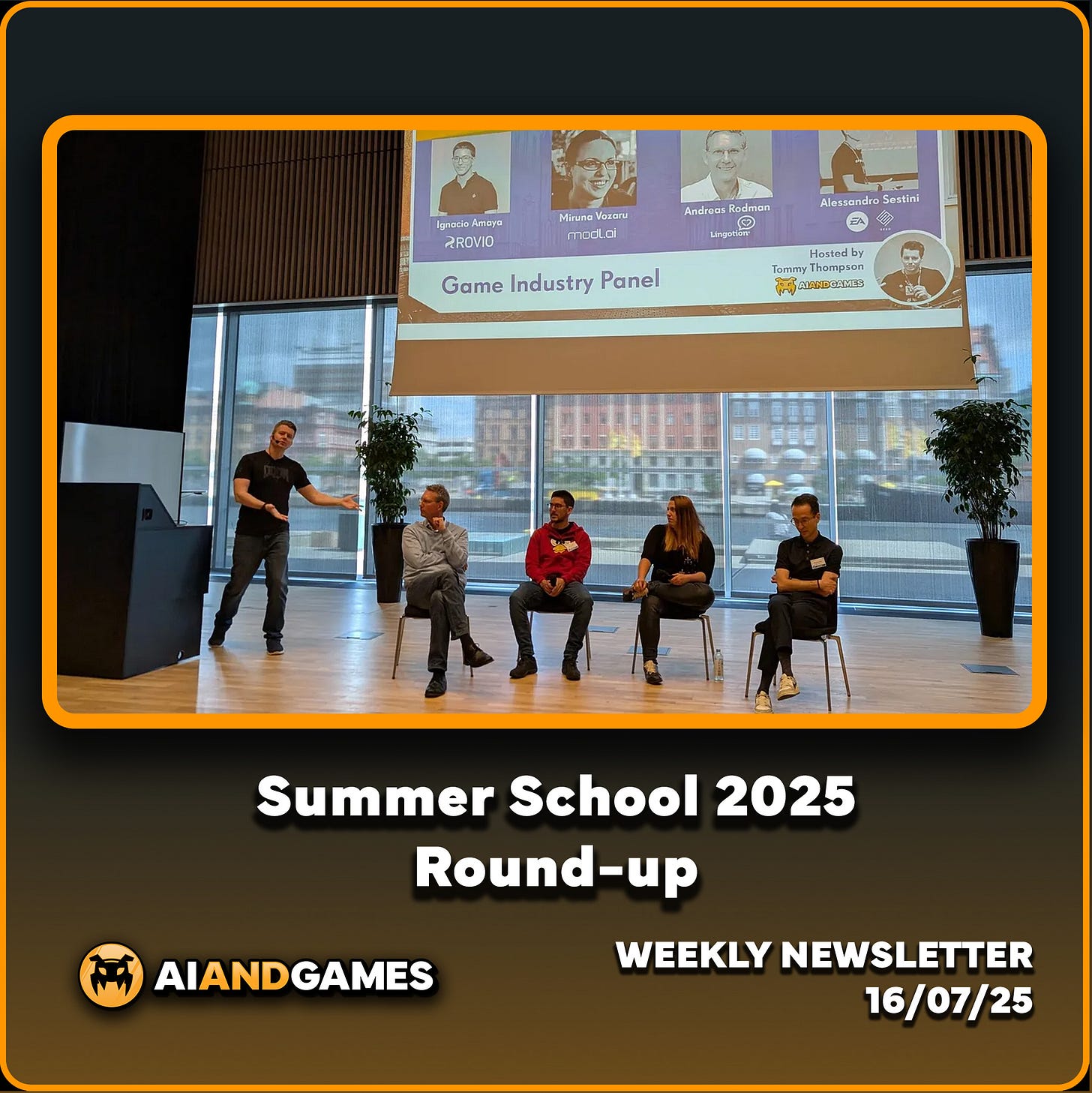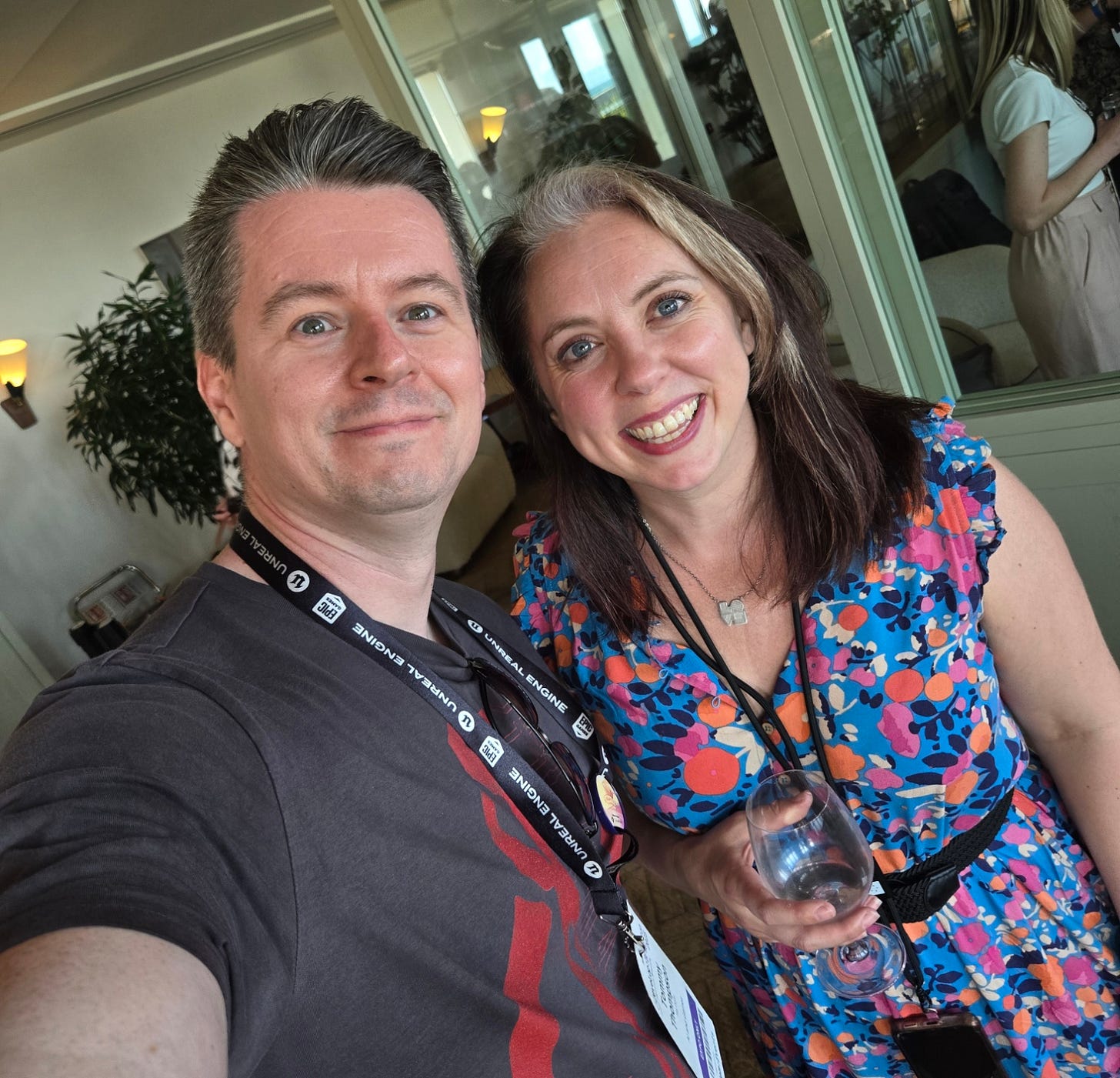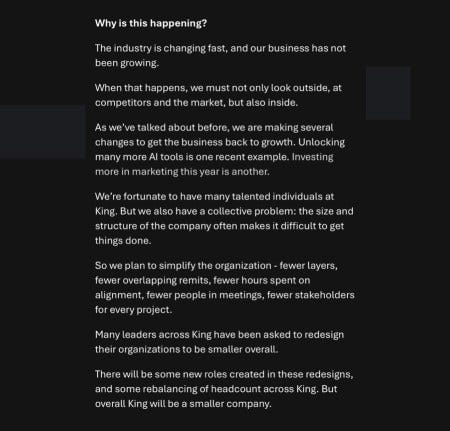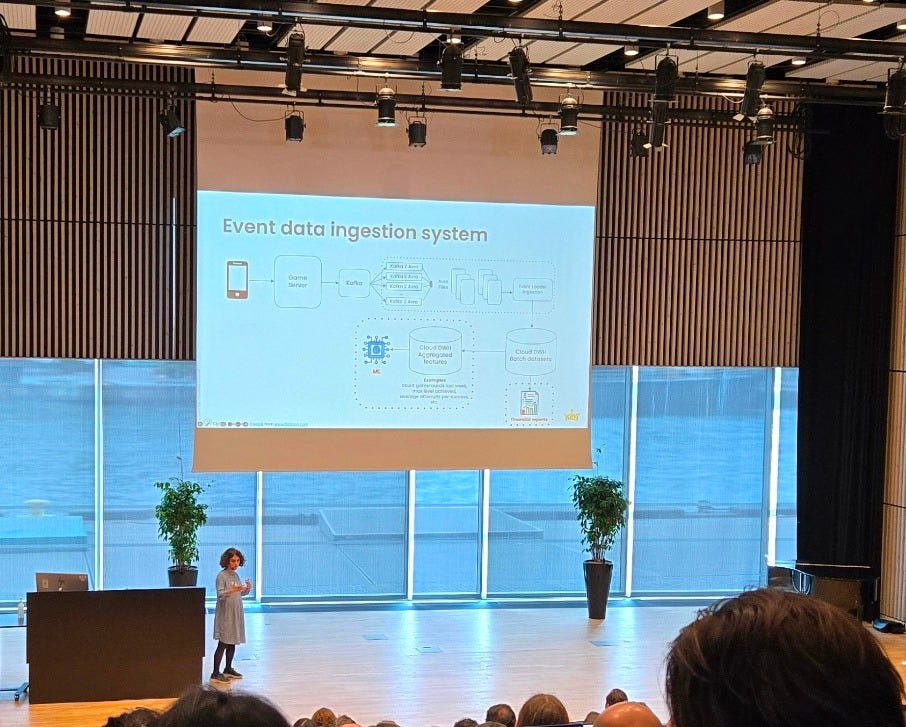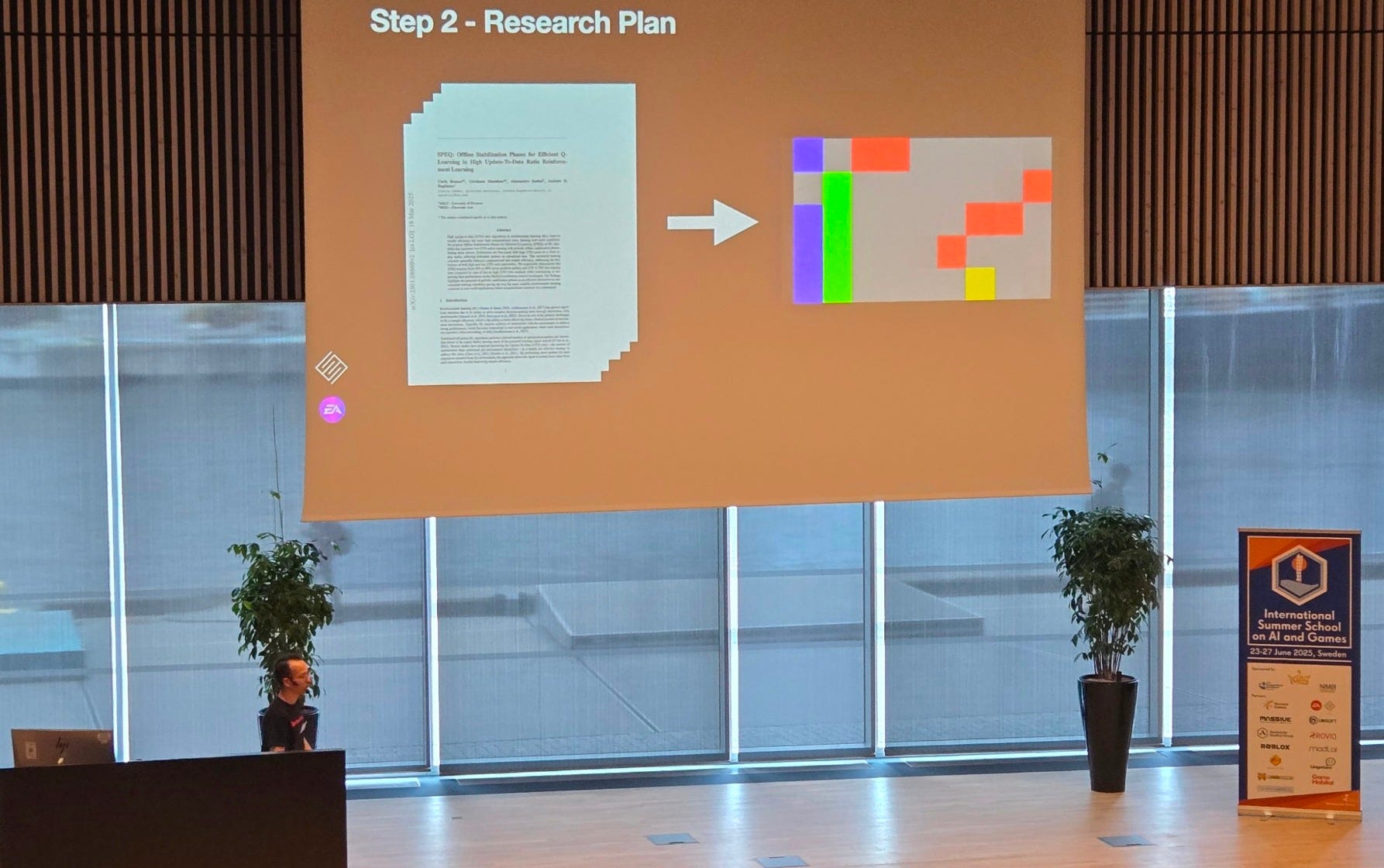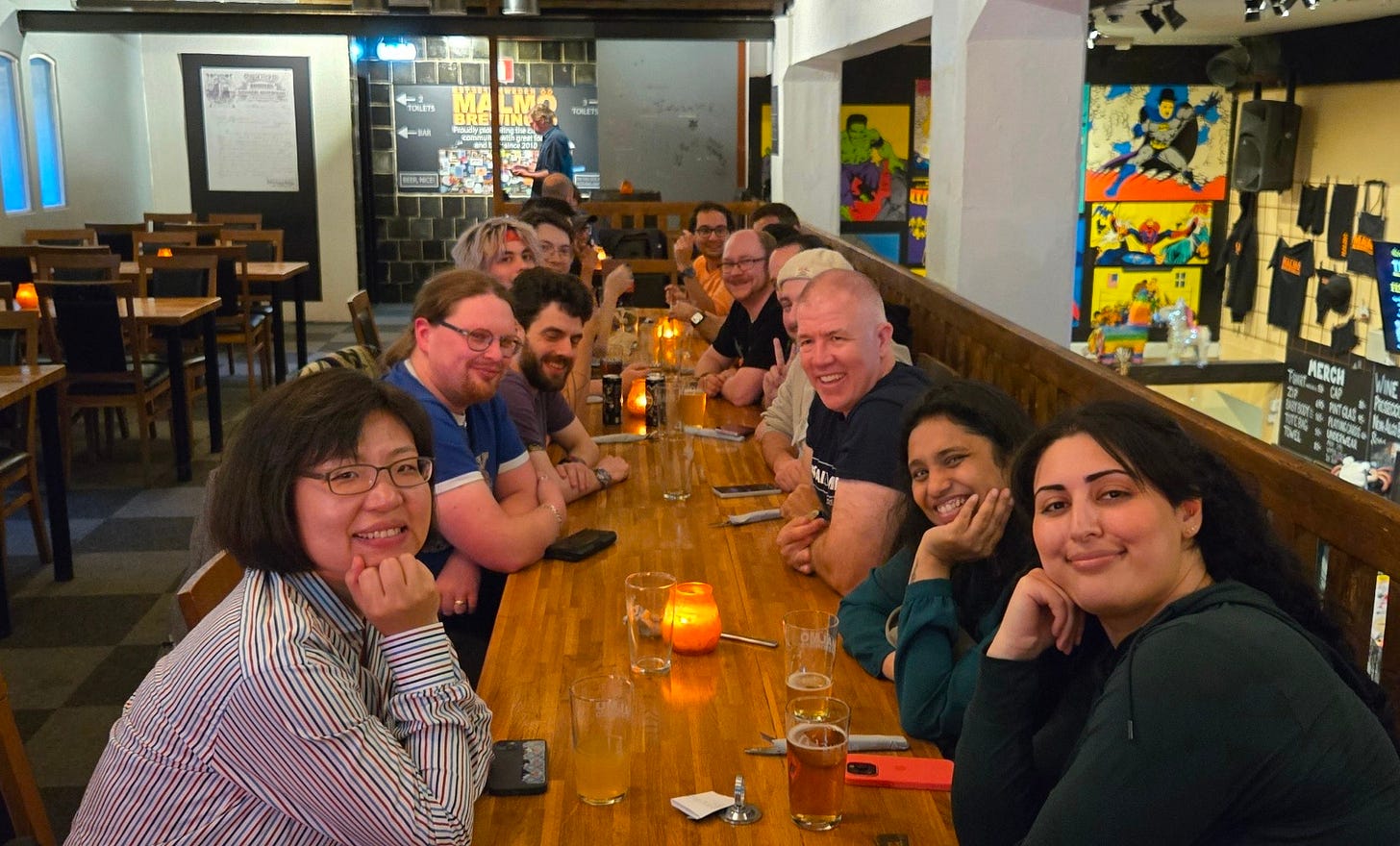Massive's Snowcap, Rovio's all-in on GenAI, and how EA SEED Conducts Research | 16/07/25
A round-up of the 2025 AI and Games Summer School
The AI and Games Newsletter brings concise and informative discussion on artificial intelligence for video games each and every week. Plus summarising all of our content released across various channels, like our YouTube videos and in-person events like the AI and Games Conference.
You can subscribe to and support AI and Games, with weekly editions appearing in your inbox. If you'd like to work with us on your own games projects, please check out our consulting services. To sponsor, please visit the dedicated sponsorship page.
Hello and welcome to this week’s edition of the AI and Games newsletter. I’m still recovering from my trip to Develop last week. It was lovely to meet so many people and catch up with contacts throughout the sector, but good golly was that a lot of meetings and socials in a short period of time - under a lot of sun too! So yeah, still trying to fight my way through my inbox and remember what my job is.
But one job i have remembered, is how to write a newsletter, let’s-a-go!
Follow AI and Games on: BlueSky | YouTube | LinkedIn | TikTok
Announcements
A quick round of announcements for ya.
Thank You Develop
Oh boy was Develop a lot of fun - and very exhausting! A big thank you to everyone who I had meetings with, and a lot of socials around the place. I have a lot of follow-ups to complete, but we’ll get there, don’t worry.
Plus a special thanks to everyone who came along to the ‘AI Skills Mixer’ in collaboration with Mastered. It was a packed house, and while it was a little too formal for longer that I liked (I mean you give me a stage, and I’ll talk), but there was free ice cream, and lots of fun chat afterwards!
AI and Games x Gamescom
With Develop in the rearview mirror, the next stop is Cologne! I’ll be presenting at Devcom, and then spending the rest of the week at the main event. There’s a plan for us to also arrange a gathering of some sort. More on this once we figure it out!
Call for Submissions Closes to AI and Games Conference 2025 Closes August 1st
That’s right, we’re only a couple of weeks away from closing our submission window for the AI and Games Conference 2025. The submissions have been steadily trickling in, and it’s already going to be a tough decision for us to figure out who we want to present.
The submission form is available at: https://submit.aiandgamesconference.com
To help guide the conversation, we have some words of wisdom from Duygu Cakmak, another member of our organisational team. Duygu’s just the best, seriously, and I’m going to go on record and say it’s a conversation between us that that kicked off everything that’s happened in the past year.
We sat down for lunch on Monday at GDC last year and between us we dusted off this old idea we’d had of trying to do some kind of event. We didn’t know where, we didn’t know how, but we agreed we needed to try to do something. I mean to be fair, Duygu and I have came up with around 101 crazy ideas between us, but this was the first time we really doubled down on trying to make it happen. She’s wicked smart, and a fantastic game developer in her own right, and I’m proud to not just have her on the team, but to call her my friend too!
AI (and Games) in the News
Not a whole bunch of news this week, but let’s quickly dive in.
YouTube Updates Policies to Disincentivise AI Slop
A recent update to YouTube’s policies has made a change to the YouTube Partner Program - which for those unfamiliar is the means by which creators make money from their content - to disincentivise AI-generated videos.
Coming into effect yesterday (July 15th), this new policy aims “to better identify mass-produced and repetitious content. This update better reflects what “inauthentic” content looks like today.” What this means is that they’re removing the ability to monetise content that is deemed ‘inauthentic’. I would suspect as a means to minimise the platform being filled with an ever-increasing amount of AI slop content.
This I believe serves two benefits for YouTube. The first is the obvious one, in that there is already a whole bunch of low-quality content that floods onto YouTube on an hourly basis, so minimising how much of that is driven by AI is useful in supporting the broader perception of YouTube as a platform.
But also…
Google trains their own AI models on YouTube content - and has previously allowed you to stop other companies getting access to creators videos to train on them. So it’s in their best interest to protect the quality of videos appearing on the platform for their own purposes for their own AI pursuits.
So yeah, it all sounds good until you stop and think about it.
WeTransfer Updates Policies to Train AI on Your Assets - and then Updates Them Again
Perhaps not the thing you’d expect me to cover here on AI and Games but this is important given it’s regularly used by creatives. WeTransfer is a service for sharing very large files across the internet. It’s very useful when you don’t have web hosting or cloud storage, or equally you want it to only be available for a short period.
Sadly, WeTransfer decided to get in on the AI hype - or maybe not? A change to their terms and conditions stated that by using their service, you now give them permission to train AI on the stuff you’re sending! Here’s the full clause:
6.3. License to WeTransfer. In order to allow us to operate, provide you with, and improve the Service and our technologies (and to develop new ones), we must obtain from you certain rights related to Content that is covered by intellectual property rights. You hereby grant us a perpetual, worldwide, non-exclusive, royalty-free, transferable, sub-licensable license to use your Content for the purposes of operating, developing, commercializing, and improving the Service or new technologies or services, including to improve performance of machine learning models that enhance our content moderation process, in accordance with the Privacy & Cookie Policy. Such license includes the right to reproduce, distribute, modify, prepare derivative works based upon, broadcast, communicate to the public, publicly display, and perform Content. You will not be entitled to compensation for any use of Content by us under these Terms. The processing of personal data is always carried out in accordance with our Privacy & Cookie Policy, which provides further details on the purposes and legal bases for such processing.
It’s not difficult to read between the lines here as to what they intend to do. They want to train their systems on your content - and without any means through which to opt out of that process. It would be, to some extent, reasonable for them to want to use it to train their moderation systems - which they identify. But the notion of being able to reproduce, distribute, and “prepare derivative works” (i.e. AI-generated content) seems pretty um… yeah, the word I’m looking for is shitty. In previous years WeTransfer has had a similar disclosure, but never with the intent of enabling for derivative works to be shared with the public.
However, WeTransfer might have been spooked by the online sentiment. Given as I was writing this, the webpage was updated to only say the following:
6.3. License to WeTransfer. In order to allow us to operate, provide you with, and improve the Service and our technologies, we must obtain from you certain rights related to Content that is covered by intellectual property rights. You hereby grant us a royalty-free license to use your Content for the purposes of operating, developing, and improving the Service, all in accordance with our Privacy & Cookie Policy.
So yeah, are they just trying to obfuscate their intent, or are they backtracking? Well, this blew up so badly they responded to a request for comment from the BBC on Tuesday, stating “We don't use machine learning or any form of AI to process content shared via WeTransfer, nor do we sell content or data to any third parties."
I’m sorry, but lest something drastic happened in the past 12 hours that WeTransfer scuppered their content moderation systems - which they only just admitted to using machine learning for - then they’re lying, plain and simple. Even in the updated clause which states you’re trying to ‘improve the service’, and I suspect it’s through the means they already admitted to.
Either way, I don’t see me using WeTransfer for the foreseeable future.
Xbox Keep Digging the Hole As Layoffs Continue
So last week the big story that broke the internet was of course that Microsoft had let go around 9000 members of staff, with a huge amount of it hitting the Xbox side of the business. This is largely being seen as a means to offset the costs of AI development at Microsoft, the one part of their business they see as having large growth potential. But yeah, it’s not a good look when the quiet thing is becoming all the more evident.
First up Mike Matsel who is a principial development lead for Xbox Graphics posted on LinkedIn that their team is hiring, only to use an AI-generated image to facilitate that. This ruffles feathers for numerous reasons:
The aforementioned ‘laying people off to pay for AI’ narrative.
It reinforces a different narrative that the use of AI at Microsoft “is no longer optional”, and staff are encouraged to use AI tools on a day-to-day basis.
Advertising a graphics position using a picture that, well, Nash expressed rather succinctly on BlueSky. Apologies for repeated F-bombs…
Meanwhile another story broke earlier this week courtesy of MobileGamer that Candy Crush developers King are laying off staff whose work can now be replaced by AI. It had already been announced that 200 staff would lose their job, largely at the London based offices, as a result of the Xbox layoffs. However, now it’s in key areas of level design, given - as we’re about to discuss in the main story - King has actually been at the forefront of AI R&D in the games industry for some time now.
It appears that many people working in level design will be laid off given the AI is now more than sufficient to do their job. A sad reality that is perhaps reflective of where things are with the games industry as a whole, but also with the growth endemic that is plaguing Microsoft, and destroying Xbox in the process.
Rounding up the 2025 Summer School
The big talking point of this weeks issue is from a couple of events back. Last month I attended the 7th Summer School on Artificial Intelligence and Games, which was hosted this year at the University of Malmo in Sweden - which was nicely timed as the first heatwave of the summer was battering the UK while I got to enjoy deliciously ‘mid’ weather. But I digress…
For this issue, I wanted to talk about some of the presentations that caught my eye in my limited time at the event - I was there for all of 2.5 of the 5 days it runs - and help put the spotlight on another great European-based event for games/AI enthusiasts.
Reminder: What is the Summer School?
So a quick reminder for those not familiar, the summer school is an annual event aimed at people interested in learning more about emerging trends in artificial intelligence in games. It’s built off the back of the book ‘Artificial Intelligence and Games’ by professors Georgios Yannakakis (University of Malta) and Julian Togelius (New York University). The book itself being a good summation of much of the academic research, and even recent corporate works, on how AI can be utilised within game development.
It’s a really good book - I mean I wrote the foreword to the second edition which came out this year, so yeah I think it’s worth reading. Though I will stress that the book - and in turn the summer school - focus almost exclusively in machine learning (and in turn deep learning and generative AI) versus traditional ‘game AI’ which is covered by the likes of Paul Robert’s ‘Game AI Uncovered’ series (itself a successor to Steve Rabin’s ‘Game AI Pro’), as well as events such as Game AI Summit at GDC and of course the AI and Games Conference.
So yeah the summer school has been going strong now for seven years, and it acts as both a means to summarise the book as well highlight contemporary works in the field. Students can then attend to get a crash course on the works detailed with the book, plus hear from researchers as well as game developers on some of the works they’re doing as well. In more recent years the industry-led content has increased as more developers come in to talk about what they are doing. With this years roster including speakers from EA Seed, Ubisoft, King, Tencent, Roblox, Rovio, and Nvidia.
I have attended the summer school for the last three years, largely in a role of ‘professional nuisance’. You can see my vlog of the 2024 event above. Though really I see my role there - where I often moderate a panel, maybe give a talk - as more of an ambassador given I do a lot of work in and around games and AI. With our own AI and Games Conference in full-swing, we act as the inverse to the summer school. Our event runs later in the year, and the summer school has a more scholarly focus for students and researchers, while the AI and Games Conference (much like GDC’s Game AI Summit) is geared towards professional practice in larger studios.
The Industry Presentations
So yeah, I figured let’s quickly summarise some interesting talks I caught during my time there…
King Leads the Way on AI Research
It’s a real shame that one of the big highlights for me was also a frustrating news item, in that King - creators of Candy Crush Saga - have been heavily invested in AI research for some years now. There were two presentations from King, the first by Sahar Asadi who discussed at length the significant challenges faced in trying to understand players experiences when playing King’s titles. Not just in understanding what that experience is, but how experiences are not uniform across player types, so it becomes a much larger and complex process to learn about.
Meanwhile Sara Karimi talked gave a nice summary of the years of work put into building AI-driven playtesting frameworks for King titles. The studio has been exploring this now for the better part of 10 years, and have been leading the charge on how a mobile studio that requires fast and frequent content updates can leverage AI to support their needs.
It’s what makes the recent news all the more frustrating, given King has invested in this research for a long time now, long before Microsoft’s overenthusiasm for AI - heck even years before Microsoft sought to purchase Activision/Blizzard/King. So for their work to now be a potential axis for layoffs, it was clearly not built with that intent - they would have done it years ago if that was the case. Instead their hard work is being used as a means to an end.
How EA Conducts AI Research
One of my favourite presentations this year was from Alessandro Sestini from EA SEED (who readers may recall presented at the AI and Games Conference last year). This talk was giving some insight into how the EA SEED organisation operates, and what value they bring to the broader game development pipeline.
For those unfamiliar, SEED is a cross-disciplinary R&D team that exists within Electronic Arts, and its role is to work with studios to solve problems that come their way. As explained in the talk, their mandate is to support studios when prompted, rather than EA dictating they creep into every production. Instead teams come to them with a defined problem, they conduct research internally, and then work towards building solutions both internally - to prove the concept - and then working with the studio to hopefully implement something they can use.
Perhaps the most interesting part of this was that the value incentives aren’t built around doing something that ships - it’s not a requirement that the work SEED conducts makes it into the production. But rather they help flesh out the collective understanding of the problem, and whether the relevant technologies (be it AI or otherwise) are going to prove viable. Really interesting stuff.
Ubisoft’s Snowcap Steals the Show (For Me At Least)
This was my favourite presentation last year where it couldn’t be shared outside of the room. Presented by Davide Frazzetto and David Renaudie (the latter taking over from Benjamin Holding who sadly took ill). This is a project developed by Massive Entertainment, creators of games such as Tom Clancy’s The Division 2, Star Wars Outlaws, and Avatar: Frontiers of Pandora, that aims to support developers in catching performance overheads during development using AI.
The project is built to support Snowdrop, the game engine used for all of the previously mentioned titles, in that it runs in the editor and approximates the GPU costs of rendering what is currently visible inside the engines editor view. But it isn’t estimating the GPU for that PC, or any other development machine, rather it’s estimating GPU cost on consoles - notably PS5, and Xbox Series S | X.
This is a really interesting concept, given it allows the developers to anticipate where there might be performance issues in the game without having to play it on the console. Speaking from experience, testing builds of a game on a console development kit is a really time consuming process, given you need to compile the game down to the required format of the console, then upload it to the console itself before you can play it. Even for a smaller indie titles I’ve worked on that’s easily 10 minutes being spent just going through the motions in order to get into the game on device and run the tests you want to make. By gathering up a tremendous amount of performance data of their engine on those consoles, the team have trained an ML model that can then predict performance on console without deploying to the device.
I can see this having huge potential in the future both for Snowdrop and other engines should the process can be replicated, and continues to sit at the top of my mind as one of the coolest implementations of AI in games - that actually helps developers - in the past couple of years.
Rovio’s All-In on Generative Art
I’ll concede it’s been a solid decade since I last cracked open Angry Birds, so it was interesting to hear from Ignacio Amaya, who operates as a machine learning engineer at Rovio. The talk was focussed on how the team out in Helsinki has been working towards building an entire pipeline that supports their art teams, largely using generative art. It was a very content rich presentation detailing much of the work they’ve done in the past couple of years.
It’s the first time I’ve seen a studio come forward and discuss it so openly, and critically as they discuss they’ve been exploring this now for a couple of years. This is going to be an point of discussion and contention in the industry for many years, and so it’s going ot be interesting to see how studios and developers respond to these practices more broadly.
What Else Happened?
Well I wasn’t there for all of it sadly, as I many a plate to spin and client to keep happy. So I missed some of the final talks on Thursday morning. Though critically one of the talks that I knew would be really interesting ‘Efficiently Imitating Human Movement in Counter-Strike’ by David Durst - a recent PhD graduate from Stanford - is the next episode of our case study series and we ran an interview with him a few months ago. I look forward to sharing that with you soon, it’s a really interesting topic.
Plus Elvis Liu from Tencent was in attendance to share the GDC talk he presented on F.A.C.U.L., the AI teammates in Arena Breakout Infinite that respond to voice commands - which I didn’t realise is available in Europe, given it isn’t available on Steam yet, but you can play download the launcher from their website. I really need to check it out when time permits (ha!).
Plus I sadly missed the game jam which runs across Thursday and into Friday. So I sadly didn’t see the end product of the week, which is where the students produce games as part of the event. I hope it all went well and people enjoyed it!
Wrapping Up
The presentations from the summer school I suspect will appear online at some point in the future - they were recorded I believe via the university lectern’s systems. So fingers crossed they appear online in the future. If and when they do, I’ll share the news with you right here.
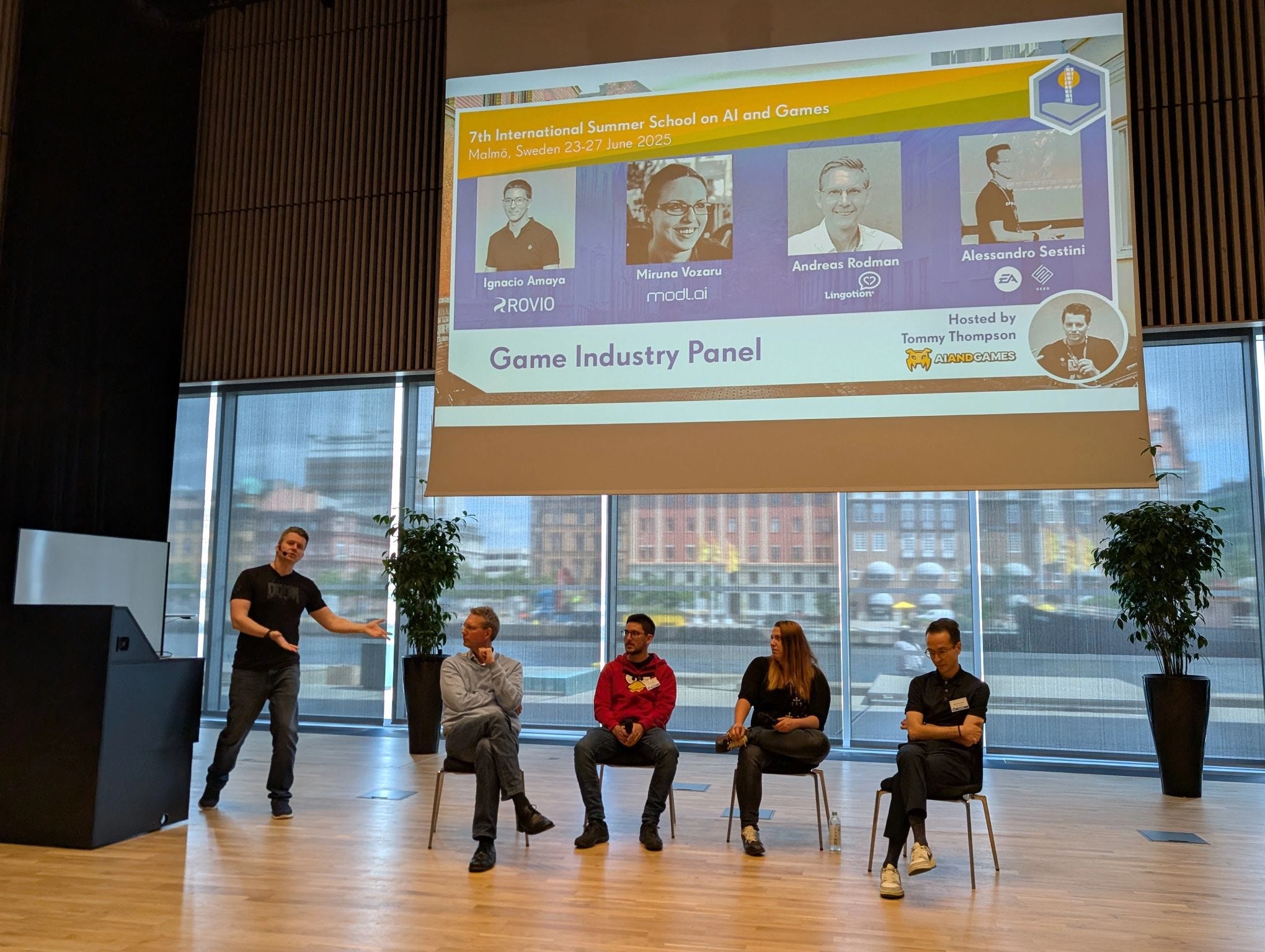
In the meantime, thanks once again to the organisers for having me attend - and equally present as a speaker and panel moderator at the event. I have no idea where the event will be going next year, but fingers crossed I can continue to participate.
Plus a special thank you to everyone who turned up to our social event on the Tuesday night. It was great to meet some of the local devs and just chat a little about all things AI and/or game development. Shall we arrange to meet at Gamescom next?
Alrighty with that, I’m off! Plenty to keep me busy here. Thanks again for reading and catch you all next week.



